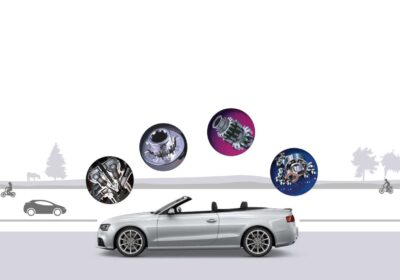
How to Get Good Sleep While Camping
In theory, a warm night spent snoozing upon soft grass and under the pale glow of the moon with twinkling stars watching over you certainly seems romantic. It also sounds luxurious. In practice, newbie campers know it’s not so comfortable. That is if you’re not prepared to make it as enjoyable as it can be.
For anyone who’s hesitant to camp out or has had a bad experience of restlessly trying to get sleep only to wake up sore and strained, please know there is hope. There is a better way to ensure a full night’s sleep if you give these tips a try.
How Can You Sleep Restfully While Camping?
Pick the Right Sleeping Bag
The first order of business is don’t skimp on your sleeping bags. A high-quality sleeping bag will do wonders when compared to a cheap counterpart. Not only will your comfort improve dramatically, but you have to remember the temperature drops when the sun goes down. Depending on where you are camping and what time of year you set out, a warm day can get awfully cold at night. A substantial sleeping bag can provide you with the insulation needed to keep your body warm.
Luckily, you have options in the sleeping bag arena. Sleeping bags designed for a car tend to be made with extra width and have the ability to be completely undone so they can provide the dual purpose of acting as a cozy blanket. That being said, their design is such that they are made to compliment the warmer interior of an automobile so they aren’t going to be as warm themselves.
If you are going to sleep in your car or in a muggy environment, you’re not going to want something that stifles airflow. Also, if you are prone to experience excessive body heat at night, these provide you with a more breathable option.
Should you be sleeping outside and more exposed to the elements, a backpacking sleeping bag may be a good fit. These options provide a full encasement with less room once zipped to trap valuable body heat. A feature that is coveted for sleeping when it’s colder. Because they are made to be packed and carried while on the move, they are lighter in weight and collapse down for easier packing and carrying. Thru-hikers who plan a day of exploring nature and settling down for the night anywhere they end up as well as those who will rest in cooler temperatures will appreciate a backpacking sleeping bag.
Sleeping bags come with temperature ratings, so finding one that is well suited to your environmental needs is possible. Always choose the one that is going to provide more warmth than what you expect the temperature to be on your trip. As with everything, reading reviews can also help you pinpoint what bag to choose and why it’s rated the way it is. Reviews also help you determine the quality of other features the bag offers as well such as if it’s solidly made, in terms of durability, which is absolutely necessary when it’s all you have on a hiking trip.
Invest in Additional Sleeping Gear
If you know you need extra support and accommodations to get your z’s, there are many other forms of gear you can purchase. A sleeping bag alone may not provide you enough cushioning on the ground so sleeping pads will be useful. They offer a wide breadth of benefits. First, they give you additional padding when laying on earth’s uneven ground. They also elevate you a bit off of the ground to act as a barrier that will help prevent your body heat being sucked up into the cold surface and instead, stay where it needs to be. With you.
You can also buy camping specific pillows to give your head some extra love. Both pads and pillows come with options. Some will be easier to pack and transport because they are inflatable. Others will have built-in closed-cell foam for easy use and set-up.
If you are staying put, like at a camping site you rented, you can go high-maintenance. Packing an inflatable mattress won’t work well for thru-hikers but glampers agree, setting up a legit bed to lay upon will cushion your bottom from the elements well. Egg crate mattresses take up serious real-estate in a camper’s bag but if you’re setting up shop in one location, it’s worth space. You can even use an egg crate mattress in combination with an air mattress and your sleeping bag for ultimate comfort. If you are going all-out for comfort, ditch the camping pillow and bring a traditional one from home to really up the ante.
Most outdoor stores, like REI, for example, allow you to test out the gear in their stores. Go ahead and lay down on a pad and see if it meets your requirements. Should you go the inflatable route, try your product out at home before you enter into the great outdoors. It’s better to know that your pillow or pad will hold its air in the comfort of your home versus in isolation.
Plan for the Elements
A tarp to put under your tent and over it will ensure that should the rain come, you won’t find yourself drenched. Earplugs are another helpful tool that any camper can reap the benefits. Because they are tiny, they work for rugged thru-hikers to glampers alike. While the sounds of the outdoors may seem inviting, the wilderness can get noisy. There’s no turning it off or muting the volume.
If white noise helps soothe you to sleep, consider one of the many apps you can download. Most of them also have timers so battery-draining can be contained on your favorite devices. Lastly, while the moon’s light is appealing, it can also be much brighter than you anticipate. An eye mask is another easy-to-pack piece of gear that can block out light to allow you to doze off.
Pitch Your Tent Strategically
It goes without saying that if you set up on rocks or uneven surfaces, you are setting yourself up for disastrous sleeping conditions.
If you are camping at a rented site, chances are you will have neighbors. Putting your tent further away gives you a bit more privacy and helps alleviate noise if they are a rowdy crowd. Also, consider where the community washrooms are so that if you need to make a trip when it’s dark, it will be much easier to get there.
Ward Off Intruders
Nothing ruins a day out more than biting bugs. Pack plenty of repellents and bug sprays and check your tent for holes these buggers can easily get through. You can also set up mosquito netting around your tent for extra protection. Lavender oils are a natural repellent; citronella candles or sprays also help.
Stay Charged
Bringing a portable charger will help you keep your devices juiced up. If you enjoy watching a flick on your tablet before bed or want to jam out to your favorite beats, a portable charger will make it all happen.
Now get out there and enjoy nature!






